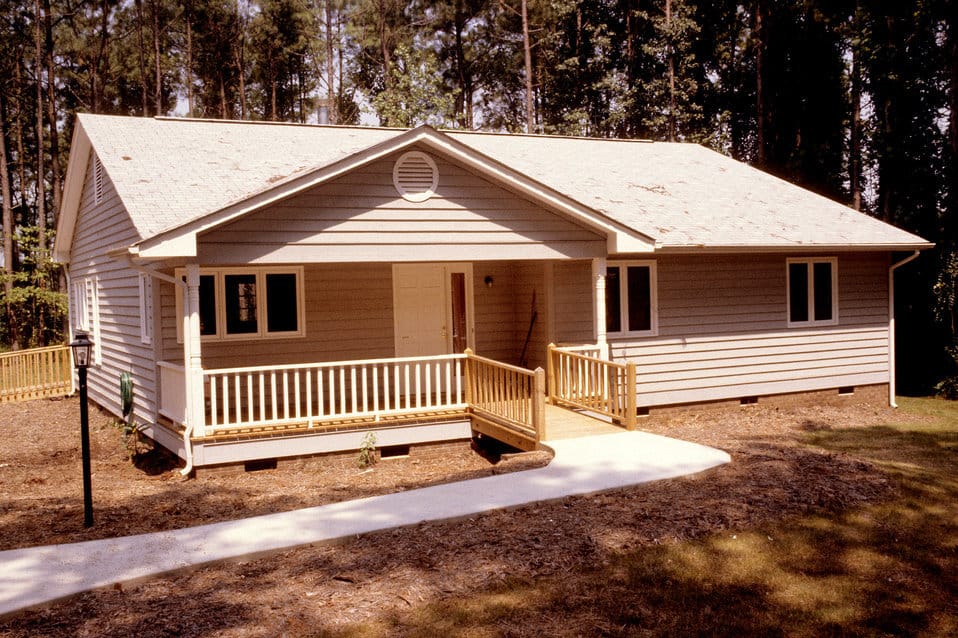Buy Your Retirement Home Young: The Smart Tax Play You’ve Never Thought Of

Most people approach retirement planning backwards, spending decades saving in 401(k)s and IRAs, then scrambling to find a retirement home when they're 65. But what if you could buy that retirement home in your 20s, 30s or 40s, let the government help pay for it through tax breaks, and move in when you're ready to retire? The strategy is elegantly simple: purchase the home where you eventually want to retire, rent it out for a couple decades while claiming substantial tax deductions, then convert it to your primary residence.
A typical $400,000 property generates around $14,500 annually in depreciation deductions alone, plus mortgage interest, taxes, insurance, and maintenance expenses. This often creates an annual tax loss of $8,000 to $15,000, saving you $2,000 to $4,000 per year in taxes depending on your bracket. Over 20 years, you'll claim around $290,000 in total depreciation while potentially seeing $200,000 to $400,000 in property appreciation.
Use the tax savings to make extra mortgage payments and pay off your future retirement home 8 years early while saving $123,000 in interest costs. This strategy lets you build substantial retirement wealth while accelerating your path to owning your retirement home debt free. When you're ready to retire, you simply stop renting and move into a property that tenants and tax deductions helped you acquire and pay down for decades.
Starting young pays off exponentially because you have 25 to 30 years for the strategy to compound. The combination of rental income covering most expenses, substantial annual tax deductions, long term property appreciation, and strategic reinvestment of tax savings transforms what most people see as a major retirement expense into a wealth building vehicle that works for decades before you need it. Your 65-year old self will thank your 35-year old self for the foresight. Just remember to consult with tax and real estate professionals since laws are complex and change over time, and you'll want to ensure this approach fits your specific financial situation.
The Coming Demographic Tsunami Makes Early Retirement Home Buying Even More Important
In just 30 years, one in three people will be elderly. According to the U.N., by 2080, people aged 65 and older will outnumber children globally for the first time ever. This data reveals the most predictable demand surge in real estate history. 2.2 billion people will be of retirement age by the late 2070s. 77 million baby boomers are entering peak retirement years right now.
The accessibility premium is already emerging in hot markets. Single-level homes without stairs now sell for 15-20% premiums in retirement destinations like Scottsdale and Naples, and that gap is widening as supply tightens. Your $400,000 ranch-style rental generating $14,500 in annual depreciation isn't just a tax play. It's a bet on 33% of the population needing step-free living by 2054. Focus on homes with 36-inch doorways, roll-in showers, main-floor master suites, and proximity to healthcare facilities. Avoid multi-level properties and homes requiring significant accessibility modifications.
The timing advantage compounds dramatically for today's young investors. A 35-year-old buying accessible property in 2025 reaches retirement in 2055, when demographic demand peaks. The demographic tailwind drives property values as 2.2 billion elderly compete for limited accessible housing stock.
Baby boomers are already driving up prices for accessible homes, and Gen X follows right behind them. Every year you delay costs roughly $15,000-25,000 in missed appreciation as the demographic wave builds momentum. The original strategy's brilliance was letting tenants and taxes fund your retirement home decades early. The UN data proves you're not just building wealth—you're positioning for the largest, most predictable buyer surge in modern real estate history. Start shopping for that single-level property this weekend. Your future self will thank you when 2.2 billion people are competing for what you already own.
Real Estate Investing News:
— Real Estate Investing Intelligence
Disclaimer: This newsletter is for educational purposes only and is not financial, investment, tax, legal, or accounting advice. I'm not a CPA, tax professional, financial advisor, investment advisor, broker-dealer, attorney, or any licensed professional. My content reflects personal opinions and research that should never be your sole basis for financial decisions. Tax laws and regulations are complex, change frequently, and vary by jurisdiction and individual circumstances. Before making any financial, investment, or tax decisions, consult qualified licensed professionals in your jurisdiction and conduct independent research. I make no representations or warranties about accuracy, completeness, or reliability of any information provided. All content is "as is" without warranties of any kind. You use this newsletter entirely at your own risk. I disclaim all liability for any losses, damages, costs, or expenses arising from your use of this information, including direct, indirect, incidental, consequential, or punitive damages. Past performance doesn't guarantee future results, all investments carry risk and may lose value, and tax situations are highly individual. Nothing here creates an advisor-client relationship. By reading this newsletter, you agree to these limitations, will seek appropriate professional advice before taking action, and agree to hold me harmless and indemnify me from any claims or damages arising from your use of this information.
